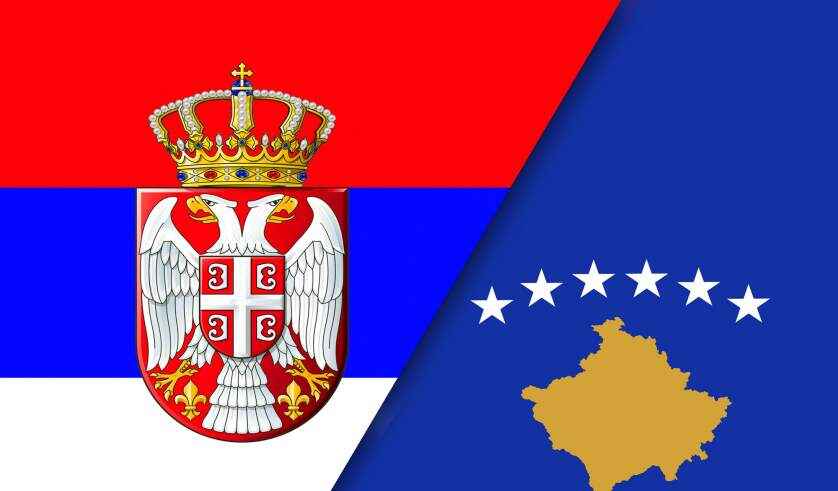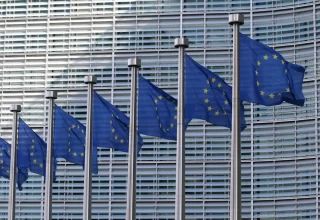
In recent years, Kosovo and Serbia have been engaged in ongoing discussions aimed at improving their relations. One of the key issues in the ongoing discussions between Kosovo and Serbia is justice for missing persons and war trials. Kosovo’s leadership has called for justice for more than 1,600 people still missing from the 1998-1999 war with neighbouring Serbia.
In January 2021, EU-led talks brokered an agreement on technical issues related to missing persons, but have struggled to make progress on the issue of war crimes trials. However, in May 2022, the leaders of Kosovo and Serbia pledged to work together to locate people who went missing during the 1998-99 war in Kosovo. While progress has been slow, there are ongoing efforts to address the issue of justice for missing persons and war trials.
Despite some positive developments, tensions between Kosovo and Serbia remain high. In April 2022, senior officials from Serbia and Kosovo asserted discordant opinions regarding where the blame for regional insecurity should lie. Tensions eased after Kosovo Prime Minister Albin Kurti, under U.S. and EU pressure, agreed, in August 2022, to postpone the implementation of a controversial number rules until September.
In late 2022, tensions between the two countries threatened to escalate into an armed conflict. In May 2023, the leaders of Kosovo and Serbia met in Brussels for talks on the EU-backed plan to normalize relations, agreeing to cooperate on issues such as missing persons and war trials. The talks between Serbian President Aleksandar Vucic and Kosovar Prime Minister Albin Kurti in Brussels have, however, failed to ease the tense situation in the north of Kosovo.
The negotiations between the two countries led to a breakthrough in 2023, with the signing of an agreement reinforcing both sides’ commitment to the normalization of their relations. The European Union has been a key mediator in the negotiations and proposed the agreement, which is based on the principles of equal rights and good-neighbourly relations and has been welcomed by the international community as a positive development towards regional stability and peace. The United States has also been involved in the process, with the U.S. Ambassador to Kosovo expressing support for the EU proposal.
The “Agreement on the path to normalisation between Kosovo and Serbia” was reached ton February 27, 2023 and an annex concerning its implementation was agreed upon on March 18, 2023. It requires Serbia to accept Kosovo’s independence de facto, but not de jure, allowing Serbia to adhere to its stance on Kosovo’s status. The key provisions include a commitment to developing normal, good-neighbourly relations, respecting territorial integrity and autonomy, and protecting human rights and minority rights. This is significant as it reinforces both countries’ commitments to the European Union’s values of democracy, rule of law, and respect for human rights.
However, the implementation of the agreement may face potential challenges, as previous agreements between the two countries have not been fully implemented due to their failure to recognize each other. In fact, on April 24, 2023, Serbia appeared to violate the terms of the agreement. The incident highlights the need for continued commitment and efforts towards the implementation of the agreement, as well as the need for ongoing support from the international community to ensure its success.
More recently, on May 2, 2023, the countries adopted the agreement, in which they pledged to work together to locate Kosovo war-era burial sites and identify the missing persons. The agreement is a crucial enabler for reconciliation and trust-building between the two sides, as resolving the issue of missing persons is not only a humanitarian obligation but also a crucial step towards reconciliation.
The normalization of relations between Serbia and Kosovo has the potential to bring significant benefits to both countries and the region. It could lead to increased stability and peace in the region, as well as improved economic prospects for both countries. However, there are also challenges to normalization, such as opposition from domestic political actors in both countries and the potential for renewed tensions in the future.
Nevertheless, the agreement signed in 2023 represents a positive step towards the normalization of relations between Serbia and Kosovo, and provides hope for a more stable and prosperous future for both countries and the region as a whole.
References
- Agreement on Normalizing Relations between Serbia, Kosovo …. (n.d.) Retrieved May 8, 2023, from press.un.org/en/2023/sc15268.doc.htm
- Agreement on the path to normalisation between Kosovo …. (n.d.) Retrieved May 8, 2023, from en.wikipedia.org
- Agreement with Kosovo: A condition for continuing …. (n.d.) Retrieved May 8, 2023, from europeanwesternbalkans.com
- EU history offers a model for Kosovo-Serbia reconciliation. (n.d.) Retrieved May 8, 2023, from www.euractiv.com
- Kosovo, Serbia fail to agree on lowering tensions in north …. (n.d.) Retrieved May 8, 2023, from www.reuters.com
- Kosovo, Serbia leaders resume talks in Brussels to …. (n.d.) Retrieved May 8, 2023, from www.aljazeera.com
- Kosovo, Serbia ‘Reach Draft Agreement to Find Missing …. (n.d.) Retrieved May 8, 2023, from balkaninsight.com
- Kosovo War. (n.d.) Retrieved May 8, 2023, from en.wikipedia.org/wiki/Kosovo_War
- Kosovo, Serbia fall short of diffusing tensions, agree to …. (n.d.) Retrieved May 8, 2023, from www.euractiv.com
- Report on Mission to Serbia, including Kosovo | How …. (n.d.) Retrieved May 8, 2023, from casebook.icrc.org
- Report on the 2022 Commission Report on Kosovo. (n.d.) Retrieved May 8, 2023, from www.europarl.europa.eu/doceo/document/A-9-2023-0174_EN.html
- The Normalisation of Relations between Kosovo and Serbia. (n.d.) Retrieved May 8, 2023, from www.swp-berlin.org/10.18449/2023C17/
By The European Institute for International Law and International Relations.













